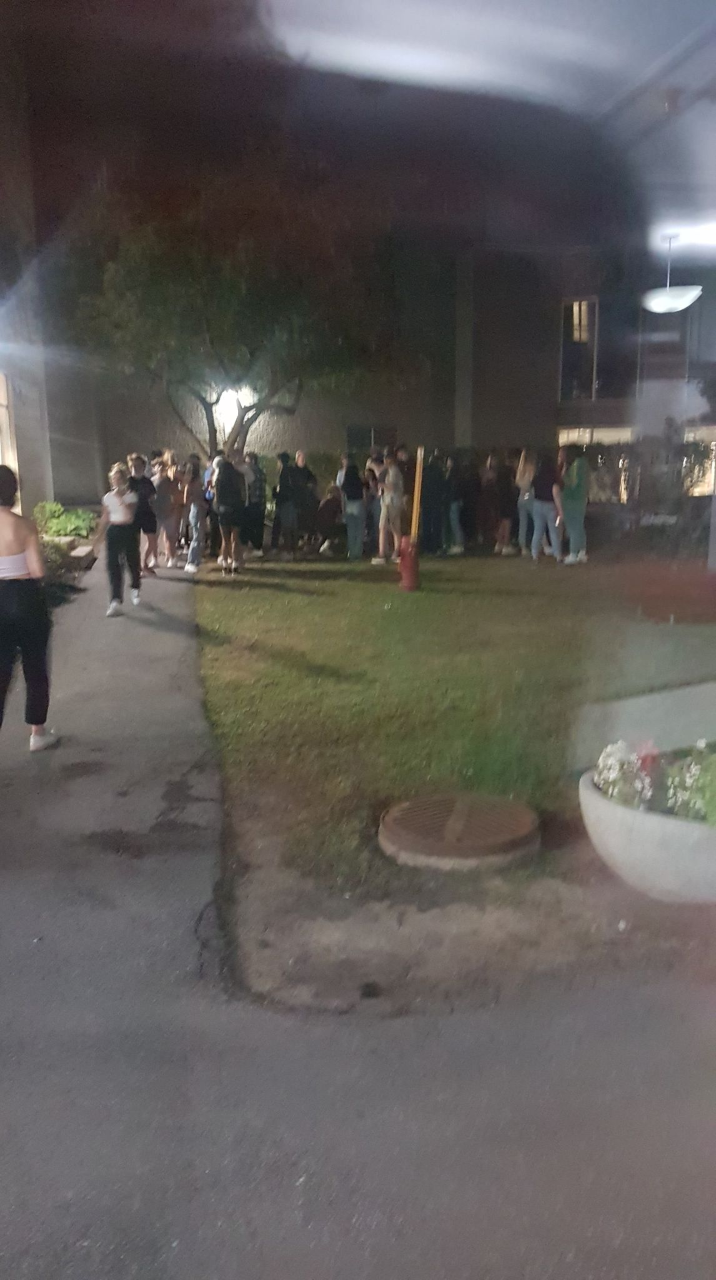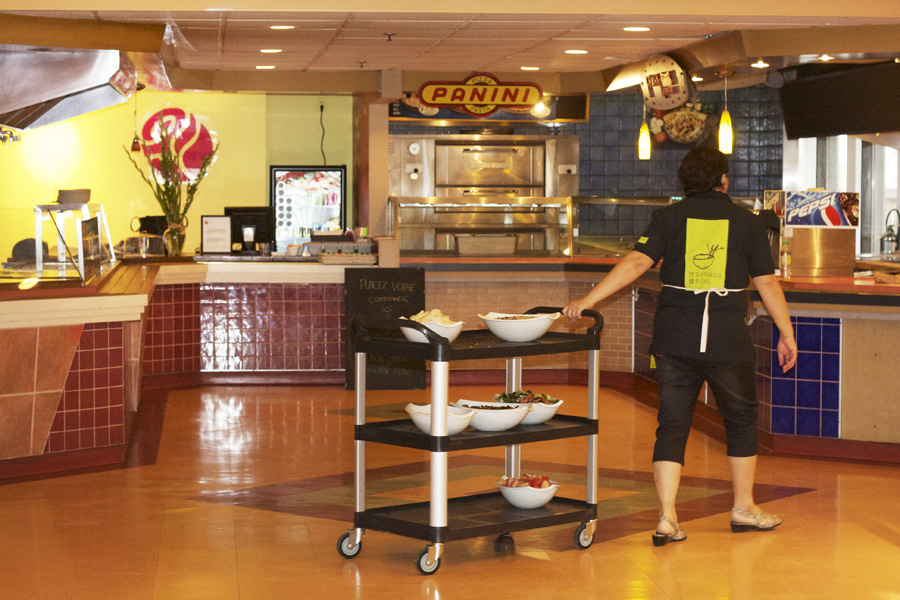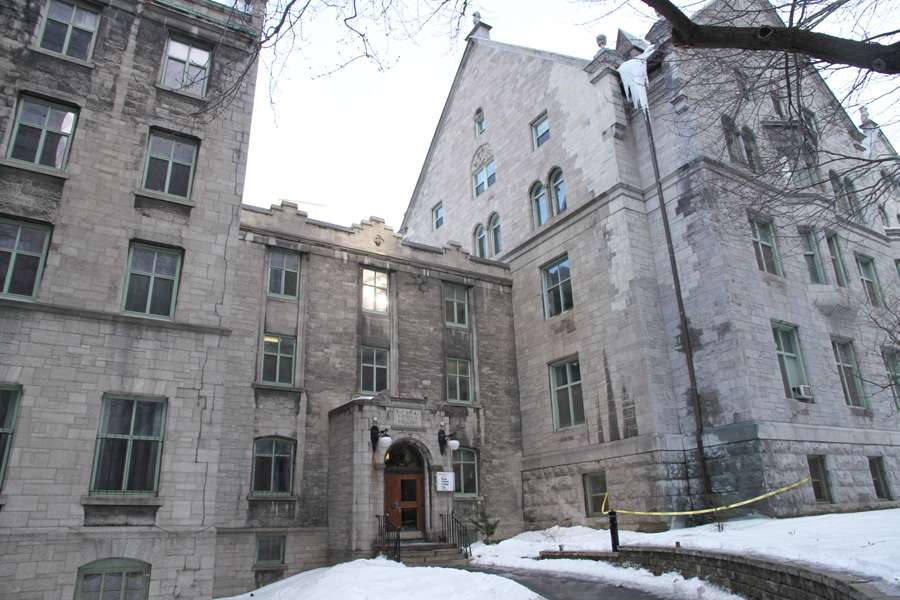In interviews with The McGill Tribune, six floor fellows across residences reported that lack of support and communication from McGill’s administration had impaired them from doing their jobs and upholding safety standards in residences during the Fall 2020 semester. All residences have been operating at a lowered capacity due to COVID-19 restrictions, with the exception of the Upper Residences, which closed their doors to students entirely in August.
Floor fellows described the year as off to a rocky start when on July 13, 22 floor fellows’ offers were withdrawn following McGill’s decision not to open the Upper Residences.
“The number of floor fellows who were hired this year reflects the decreased residence occupancy,” McGill media relations officer Frédérique Mazerolle wrote in an email to The McGill Tribune. “This information was communicated to all potential floor fellows in the summer months. Floor fellows who were not offered contracts were offered temporary accommodation at no charge to allow them the needed time to secure alternative accommodations.”
Despite this, floor fellows expressed concern that those whose contracts were terminated were suddenly faced with the loss of anticipated income and scrambling to find housing for the school year. The Association of McGill University Support Employees (AMUSE) has filed grievances against McGill on behalf of the former employees, but a resolution has yet to be reached.
McGill initially decided to close the Upper Residences and the Royal Victoria College (RVC) residence because of their shared bathrooms, but Student Housing and Hospitality Services (SHHS) successively backtracked on their initial plans, deeming RVC safe for 30, then 80, and then 180 students. Throughout this time, floor fellows were not notified by SHHS of the reasons for the closures, reopenings, and increases in capacity in RVC.

More miscommunication arose when one of the Residence Life Managers (RLM) resigned shortly following the completion of their training. The resignation left a single RLM in charge of all residence buildings, despite the fact that there had been an RLM for every two buildings in previous years. RLMs are responsible for supervising floor fellows, crisis management, and collaborating with SHHS. Although a replacement RLM was soon hired, they resigned days later, leaving one RLM to manage all residences.
The lack of supervision forced floor fellows to take on additional responsibilities, such as compiling lists of students on their floors, without access to resources such as printers. Although a few floor fellows were granted additional compensation for some of these extra duties, the absence of an authority figure resulted in confusion in residences.
One floor fellow described the uncertainty that floor fellows faced upon move-in.
“I really want to make it clear that, in my opinion, [SHHS] walked into an unprepared system,” Julie* said in an interview with the Tribune. “It was a complete free-for-all [….] We had to put in a lot of extra time [to meet] and divide up the students amongst ourselves, and [decide] what the community would look like, which usually does not happen, [because we] usually have a manager.”
In a survey conducted by AMUSE, 80 per cent of floor fellows attested to the difficulties posed by a lack of an authority figure. With many floor fellows forced to assume the responsibilities of an RLM themselves, several expressed that doing so strained their relationships with the students on their floors, for whom they are supposed to act as a support system.
“When we didn’t have an RLM, we had to take up more [of a] policing role of having to discipline students and give out warnings and send emails on behalf of whoever’s running the building to the whole sort of the whole residence community, which [has never] happened before,” another floor fellow, Amy,* said.
As COVID-19 cases in Montreal rose throughout the semester, McGill implemented a “three strikes” policy in residences in October, which mandated that students receive up to three strikes for violating safety policies before facing more severe consequences, such as expulsion from residence. In an email to the Tribune, Sarah Graham, vice-president floor fellow, expressed that the lack of coordination during the policy’s implementation posed safety concerns for those working in residences.

“Staff have reported that there are some first years who have [received written warnings] over eight times and still remain in residences,” Graham wrote. “Not to mention that this whole strike policy puts [floor fellows] in a position where they have to essentially police the people they are intended to support.”
Noa Crébassa, U2 Arts, moved into Solin Hall after struggling to find accommodations due to COVID-19. According to Crébassa, who witnessed other students on her floor violating safety restrictions, stewards often failed to issue official written warnings—which meant such violations went unaddressed.
Meanwhile, as restrictions tightened, students living in residences reported declining mental health and an increasing sense of isolation. Students’ Society of McGill University (SSMU) Vice-President (VP) Student Life Maheen Akter described receiving several emails from parents of students in residences expressing concern about their child’s well-being, and called on both SSMU and the administration to do more to create a sense of community in residences.
On Nov. 2, SHHS sent an email to all floor fellows announcing that every Friday, Saturday, and Sunday, floor fellows would be assigned to walk through their residences to interact with students to build a greater sense of community and ensure that everyone is following the rules. The new duties sparked confusion among many floor fellows given that the resumption of in-person work contradicted Quebec’s recent implementation of increased red zone restrictions. Floor fellows were also not provided with any additional personal protective equipment, beyond the two reusable masks, a face shield, and antiseptic wipes, that they had received in August.
“I had a duty round [earlier in the year] and I had to walk around the building with the night steward, and we broke up [more than five parties] in the span of 9 p.m. to 12 a.m.,” Catharina*, a floor fellow, said in an interview with the Tribune. “There were interactions where I was less than six feet away from folks without masks.”
According to Graham, however, SHHS has failed to acknowledge the possibility of residence workers contracting COVID-19 while on duty, and has not provided alternatives for immunocompromised or at-risk floor fellows.
On Jan. 13, SHHS abolished the three strikes policy, and in its place, implemented a system in which one violation would result in a disciplinary meeting, with further violations resulting in more severe consequences.
Floor fellows and Akter have called on SHHS and Deputy Provost (Student Life and Learning) Fabrice Labeau to increase consultations with floor fellows before implementing new policies.
“There’s a real […] disconnect between what [Labeau] thinks is the best way to move forward and what [is actually] the best thing to do,” Akter said. “The administration doesn’t realize what’s actually happening in residences [and they] don’t have first-hand knowledge. They aren’t seeing […] the reality of these decisions they’re making.”
*All floor fellows names have been changed to preserve anonymity.







